Gilbert Isbin - a listener's guide
Gilbert Isbin is Belgium's leading modern composer for acoustic guitar, lute, renaissance guitar, bass guitar, ukulele, small ensembles and songs, and also a wonderful guitarist.
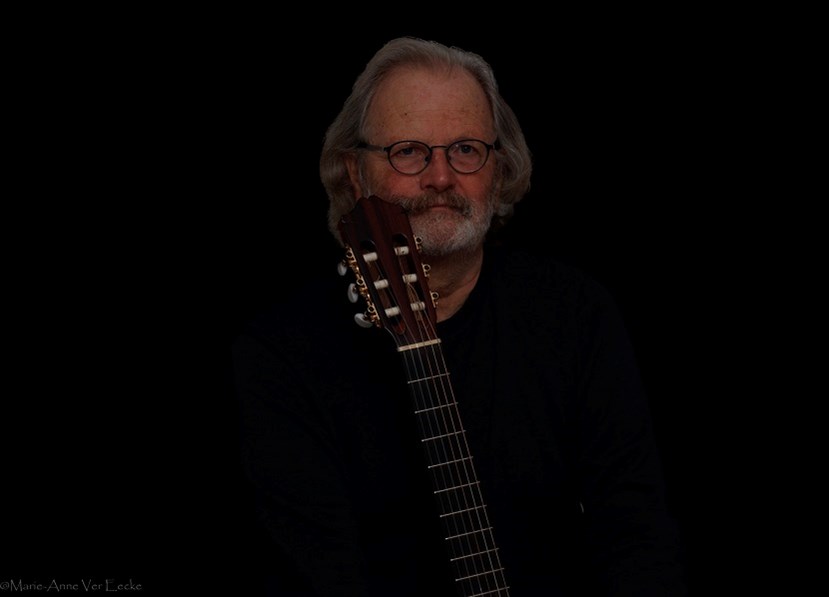
His music blends European improvisation and jazz styles with modern classical techniques to create a unique soundworld. Melodic and avant garde tendencies are balanced to capture the listener immediately and yield rich rewards from repeated listening.
His written music is published widely and if you play any of these instruments I'd highly recommend you to take a look at Gilbert's website.
This article is about discovering his music as a listener, through his own recordings and also those by others, spanning a career of over 40 years. Here are seven albums which show the range and quality of Isbin's work.
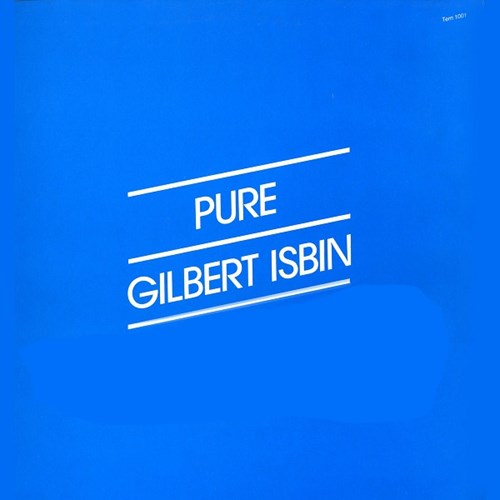
"Pure" - 1984
Vintage but sounds brand new. Duets between Isbin's classical guitar and Paul Van Laere (flute, soprano sax) make up much of this album. The combination of expressionism, melody, space and reverb give an ECM flavour.
An inventive blend between composition and improvisation reminds me of Ralph Towner's most recent solo and duo work.
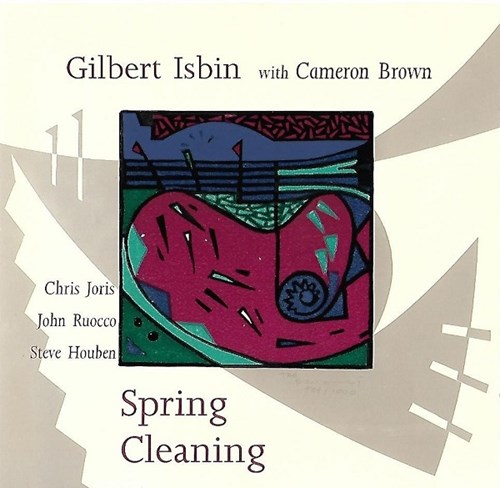
"Spring cleaning" - 1992
With a dream band from 1992 with Isbin, classical and electric guitars, Cameron Brown double bass, John Ruocco tenor sax, alto clarinet and clarinet, Steve Houben flute and Chris Joris percussion/berimbau.
Possibly Isbin's most "modern jazz" album with echoes of Egberto Gismonti, Paul Bley and Eric Dolphy. Mind bending sonic colours from Chris Joris spark extended techniques from the other instruments, helped by a warm and intimate recording.
A triumph!
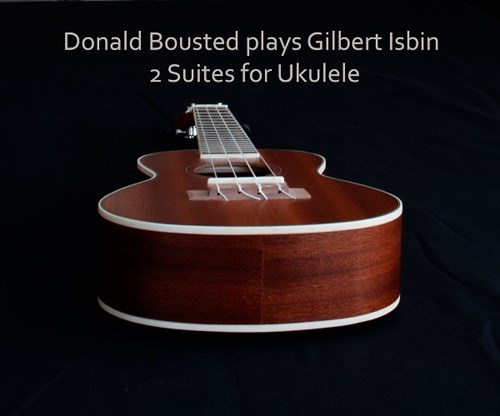
"Donald Bousted plays Gilbert Isbin: 2 Suites for ukulele" - 2021
A ukulele classic! These two suites bring out the economy and distilled imagination of the compositions, beautifully played by Donald Bousted. Here the ukulele sounds like a small lute, delicate and harmonised with the room.
The influence of Cuban composer Leo Brouwer can often be heard in Isbin's imaginative use of plucked instruments.
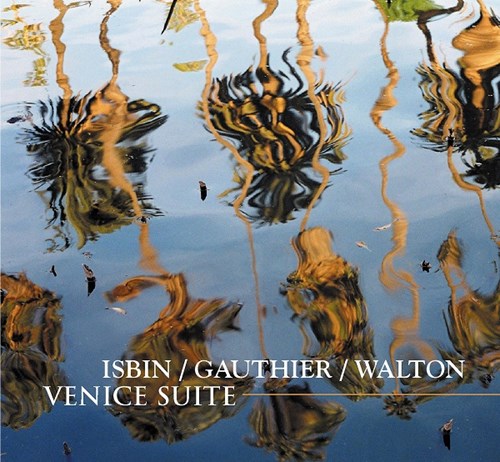
"Venice suite" - 2005
Brilliant chamber music with improvisation from 2005. Gilbert is joined by Jeff Gauthier violin and Scott Walton, double bass and piano for 16 nuanced gems. This is the band which Isbin remembers most fondly as a concert entity. The interaction is amazing, both on his compositions and during the improvised "Venice Suite" where the combination of acoustic guitar and Walton's piano alongside violin is just stunning - and "The Brugge Suite" which is just guitar and violin walking a tightrope between tension and lyricism.
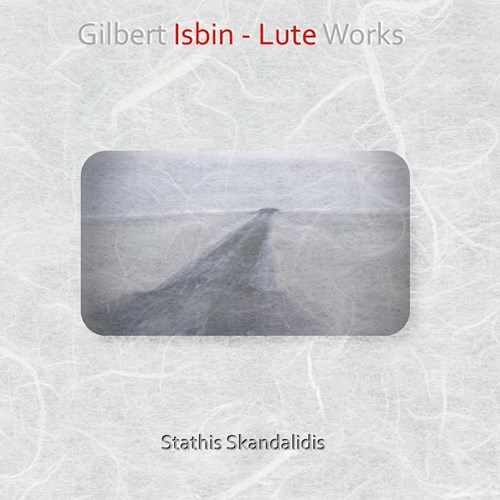
"Stathis Skandalidis plays Gilbert Isbin" - 2020
Contemporary lute music. Eleven intimate and lyrical pieces beautifully played exploit the lute's special sonorities.
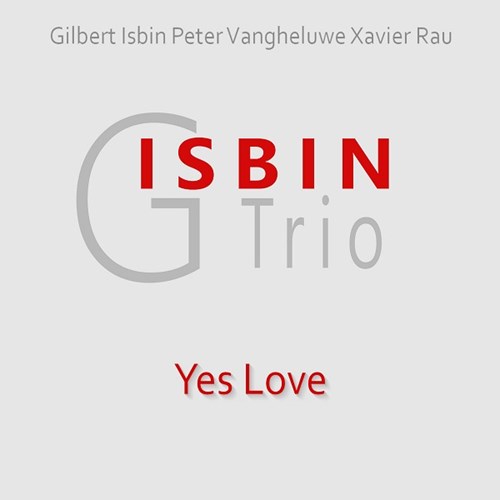
"Yes Love" - 2019
Also modern jazz lute from 2019 - Gilbert in a trio with double bass and drums; favourite track "Wawacou".
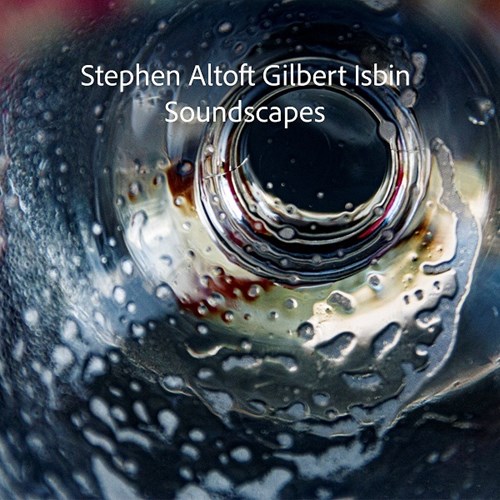
"Soudscape 12" - 2024
The forthcoming album with electronic guitar; Stephen Altoft, trumpet/flugelhorn, Gilbert Isbin guitar/electronics. Wonderful abstract compositions full of intriguing soundscapes - listen on Gilbert's youtube channel.
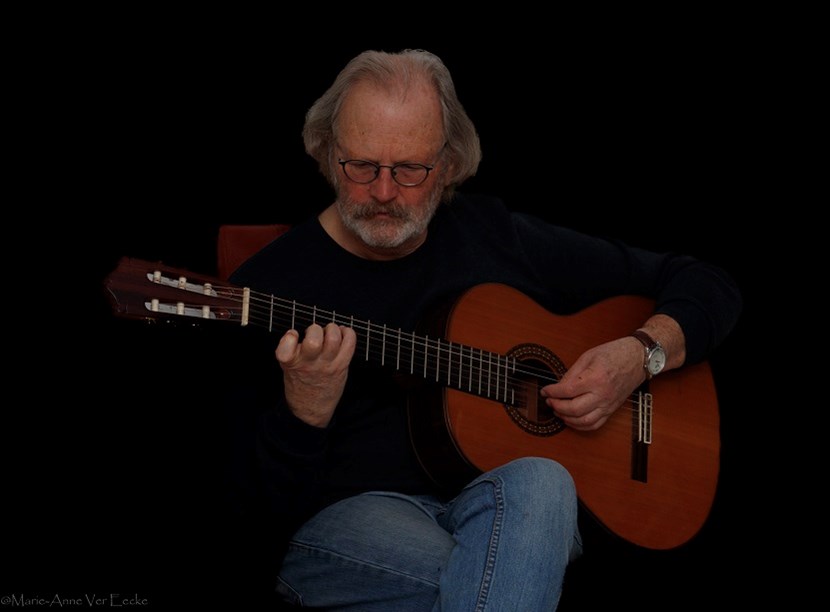
Gilbert was kind enough to respond to my interview questions to give more of an insight into his work and inspirations.
How do you balance your work as a performer with that as a composer?
I decided recently to do fewer performances. I am getting older, it’s very time consuming and I get a lot of satisfaction from composing. However I do intend to post videos of my guitar playing on Youtube into the future.
What drew you to plucked instruments and which instrument did you learn first?
I was and still am a big Beatles fan, a guitar oriented group. So it was obvious that my first instrument was a - very cheap - classical guitar. Then later I also played steel string, 10 and 12 string guitars, jazz guitar and renaissance lute. I compose also a lot for early music instuments like the baroque lute, renaissance guitar, baroque guitar, but I don’t own these instruments. Luckily there exist excellent books to get an understanding of the specific techniques and characteristics.
How have the challenges of being a musician changed over your career?
As soon as I mastered the guitar to a certain degree I began composing. I tried to publish my compositions but it took a long time to get publishers convinced. But I kept trying and then finally I got a contract with well known publishers like the UK Lute Society, Berben, Mel Bay and now Guitarbymasters. Especially the last two ones do a lot of promotion. But it took a long time and perseverance. The fact that I am a self taught musician might have been one of the reasons why my works at the beginning were rejected by publishers. They kept asking which conservatory did I attend? Well, none. The attitude concerning diplomas is fortunately much changed.
For what concerns performances: because my music doesn’t fit in a certain well defined genre it was not always easy to convince organisers to get concerts. But I never wanted to be part of a scene, because it can undermine your creativity. A scene expects that you play in a certain style and I wasn’t prepared to do that. And with groups there is also the aspect of ego problems, sometimes the lack of involvement in groups. It’s often very energy taking. However I have some great concert memories especially in duets in which I function at my best. I especially favour the ones I did with Jeff Gauthier (violin), Scott Walton (bass), Joe Fonda (double bass) and Cameron Brown (double bass).
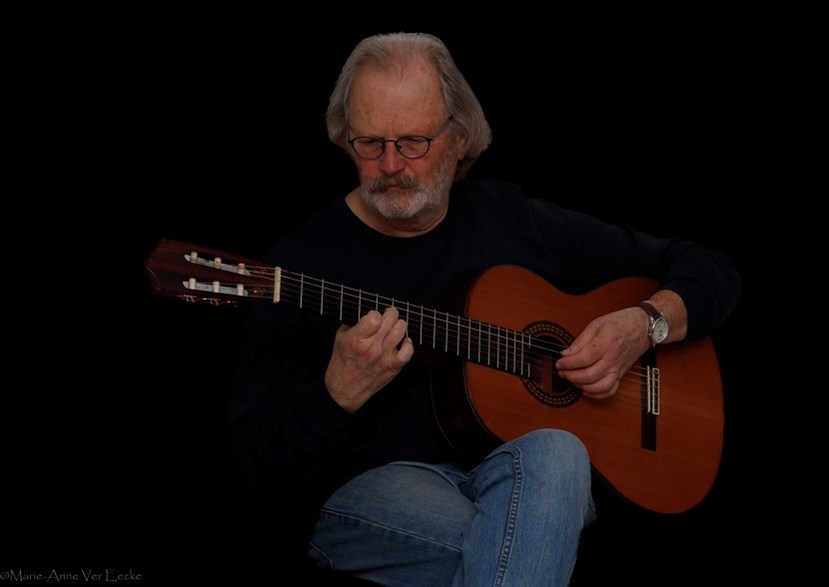
What music inspires you and what is your favourite listening?
I grew up with pop music; The Beatles, The Stones, Crosby Stills and Nash, King Crimson, Jeff Beck, John Renbourn, Bert Jansh, Pentangle, but also with John Mclaughlin, Zappa, Egberto Gismonti, Ralph Towner, Joe Pass, Mick Goodrick, Bill Evans, Julian Bream, Leo Brouwer, the music of Bach, Debussy, Satie, Ives, early music, free music, world music. All these wonderful musicians, composers and genres have influenced my style. Nowadays I like more and more melodic music, improvised, far going or not, but music that tells a story. The music I compose now is quite accessible, almost singable. But the arrangements can be quite far out. It’s strange but a lot of musicans of my age are doing tributes to for instance The Beatles (Al Di Meola, Bill Frisell, Pat Metheny…) These melodies are everlasting.
However, apart from my more melodical approach, I am still interested in more avantgarde music. I have a twin zodiac sign….
What advice would you give to performers and composers starting out now?
That’s a difficult question. Try to tell your own stories, incorporate the musical influences that you favour, but don’t plagiarise, record your music, release albums, put your music on YouTube, Instagram, Linkedin, Bandcamp, use all possible social media, let as many people know what you are doing. For getting a publishing contract, persevere.
And if you don’t succeed just publish it via Kindle on Amazon and then promote with social media. Keep in mind that it’s not sure that your pieces will get promoted well when you have a contract with a publishing company. Sometimes you are just there to fill the catalogue and you never get a penny.
What is your composing routine and what methods do you use?
When chords come first, I just play 2 chord combinations and hum a melody. Then I add new chords, hum again a melody etc. I don’t care about the key, nor the scales. This open doors for non-functional harmony. And then when I have a more developed skeleton (melody - chords) that I try to get more variety by using motivic development, modulation, changing the harmony, use broken chords , arpeggiated chords, chords with open strings, add more or less bass movement, add ostinato, pedal points, vary the rhythms. When the melody comes first, I usually go for a two note combination (of melody and bass) and then add middle voices. Again I don’t care about the key, the scales. And then later I use compostional techniques.
Guitarbymasters has published ‘The Composing Guitarist.’ It was a lot of work, but I am very satisfied with it.
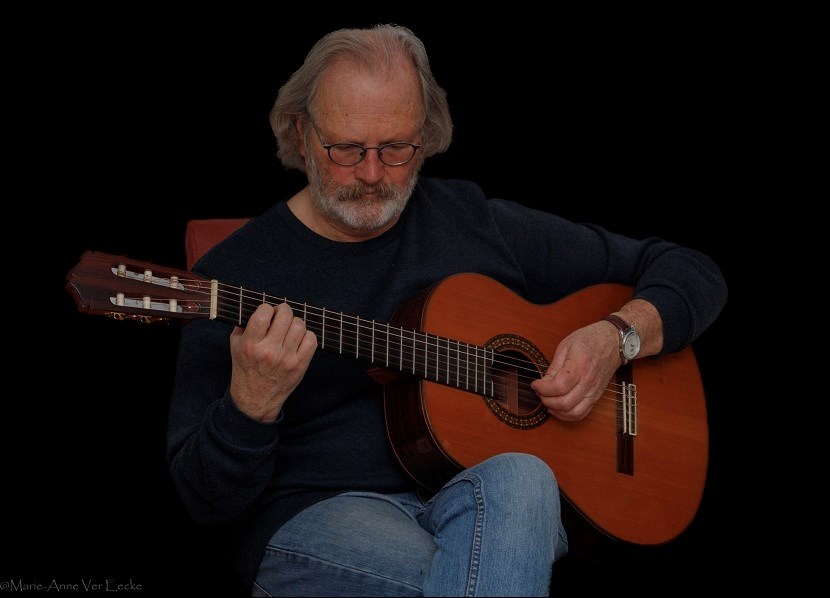
You're successful at getting other musicians to perform and record your work. How do you achieve that?
I put my music and scores as much as possible on social media, blogs, YouTube or I sometimes send scores to performers. The fact that I am published by Mel Bay opens doors of course. Also the fact that I compose new music for early instruments triggers some musicians to give it a try. It’s something unique.
What are your favourites amongst your works and recordings?
Definitely the compositions for early music instruments, but also the educational books, the guitar ensemble works. I worked on every composition very hard. I only publish it when I am totally satisfied.
For what concerns the recordings, definitely the albums that were released on the Jazz'halo label. There was always an open minded vision and positive vibes. Jos Demol, the label owner, is a longtime friend of mine who always encouraged me. But then there are also the "Gilbert Isbin Plays Nick Drake" Cd and "Recall", compositions and improvisations with bassplayer Scott Walton, with whom I did wonderful concerts worldwide.
What next for your music?
I have composed two suites, one for recorder and baroque lute and one for classical guitar and baroque lute (a unique combination) which will be performed by Alberto Crugnola from Italy and another musician. There are two books to be published this year by Mel Bay (40 easy Guitar duets), a book with compositions for upright bass and there is a new book with two suites for ukulele to be published by Guitarbymasters.com (recorded by the great late Donald Bousted). And now I am composing 2 part counterpoint pieces for a new book.
You write for ukulele in both 5ths and re-entrant tuning. Was that a personal choice or did particular players request you to?
I composed them on demand for Rob MacKillop. This was again a fascinating musical adventure.
I'm enjoying listening to your Soundscape project with Stephen Altoft. What instruments/software did you use? Is there a plan to release this?
Yes we will release the music on Bandcamp. On some of the soundscapes I just used Sibelius, I also have a Triple Play guitar midi pick up, which I use in with plug ins.
Text © Stephen Godsall - photo's © Marie-Anne Ver Eecke
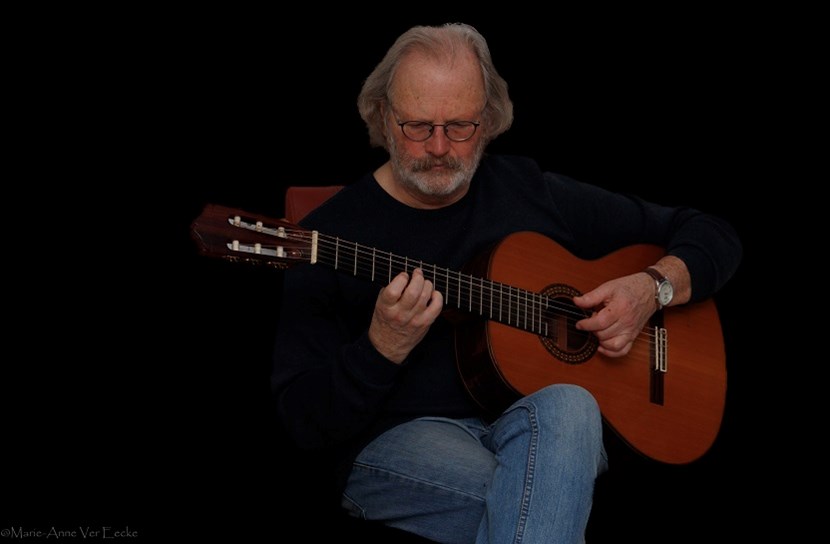
Other
In case you LIKE us, please click here:

Foto © Leentje Arnouts
"WAGON JAZZ"
cycle d’interviews réalisées
par Georges Tonla Briquet

our partners:



Hotel-Brasserie
Markt 2 - 8820 TORHOUT

Silvère Mansis
(10.9.1944 - 22.4.2018)
foto © Dirck Brysse

Rik Bevernage
(19.4.1954 - 6.3.2018)
foto © Stefe Jiroflée
Philippe Schoonbrood
(24.5.1957-30.5.2020)
foto © Dominique Houcmant

Claude Loxhay
(18/02/1947 – 02/11/2023)
foto © Marie Gilon

Pedro Soler
(08/06/1938 – 03/08/2024)
foto © Jacky Lepage
Special thanks to our photographers:
Petra Beckers
Ron Beenen
Annie Boedt
Klaas Boelen
Henning Bolte
Serge Braem
Cedric Craps
Luca A. d'Agostino
Christian Deblanc
Philippe De Cleen
Paul De Cloedt
Cindy De Kuyper
Koen Deleu
Ferdinand Dupuis-Panther
Anne Fishburn
Federico Garcia
Jeroen Goddemaer
Robert Hansenne
Serge Heimlich
Dominique Houcmant
Stefe Jiroflée
Herman Klaassen
Philippe Klein
Jos L. Knaepen
Tom Leentjes
Hugo Lefèvre
Jacky Lepage
Olivier Lestoquoit
Eric Malfait
Simas Martinonis
Nina Contini Melis
Anne Panther
France Paquay
Francesca Patella
Quentin Perot
Jean-Jacques Pussiau
Arnold Reyngoudt
Jean Schoubs
Willy Schuyten
Frank Tafuri
Jean-Pierre Tillaert
Tom Vanbesien
Jef Vandebroek
Geert Vandepoele
Guy Van de Poel
Cees van de Ven
Donata van de Ven
Harry van Kesteren
Geert Vanoverschelde
Roger Vantilt
Patrick Van Vlerken
Marie-Anne Ver Eecke
Karine Vergauwen
Frank Verlinden
Jan Vernieuwe
Anders Vranken
Didier Wagner
and to our writers:
Mischa Andriessen
Robin Arends
Marleen Arnouts
Werner Barth
José Bedeur
Henning Bolte
Erik Carrette
Danny De Bock
Denis Desassis
Pierre Dulieu
Ferdinand Dupuis-Panther
Federico Garcia
Paul Godderis
Stephen Godsall
Jean-Pierre Goffin
Claudy Jalet
Chris Joris
Bernard Lefèvre
Mathilde Löffler
Claude Loxhay
Ieva Pakalniškytė
Anne Panther
Etienne Payen
Quentin Perot
Jacques Prouvost
Renato Sclaunich
Yves « JB » Tassin
Herman te Loo
Eric Therer
Georges Tonla Briquet
Henri Vandenberghe
Peter Van De Vijvere
Iwein Van Malderen
Jan Van Stichel
Olivier Verhelst



